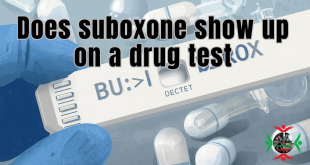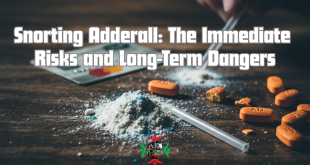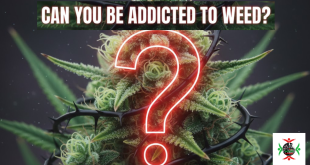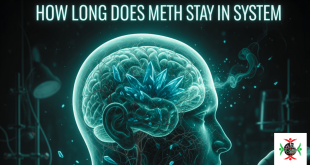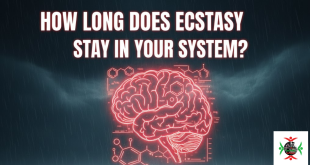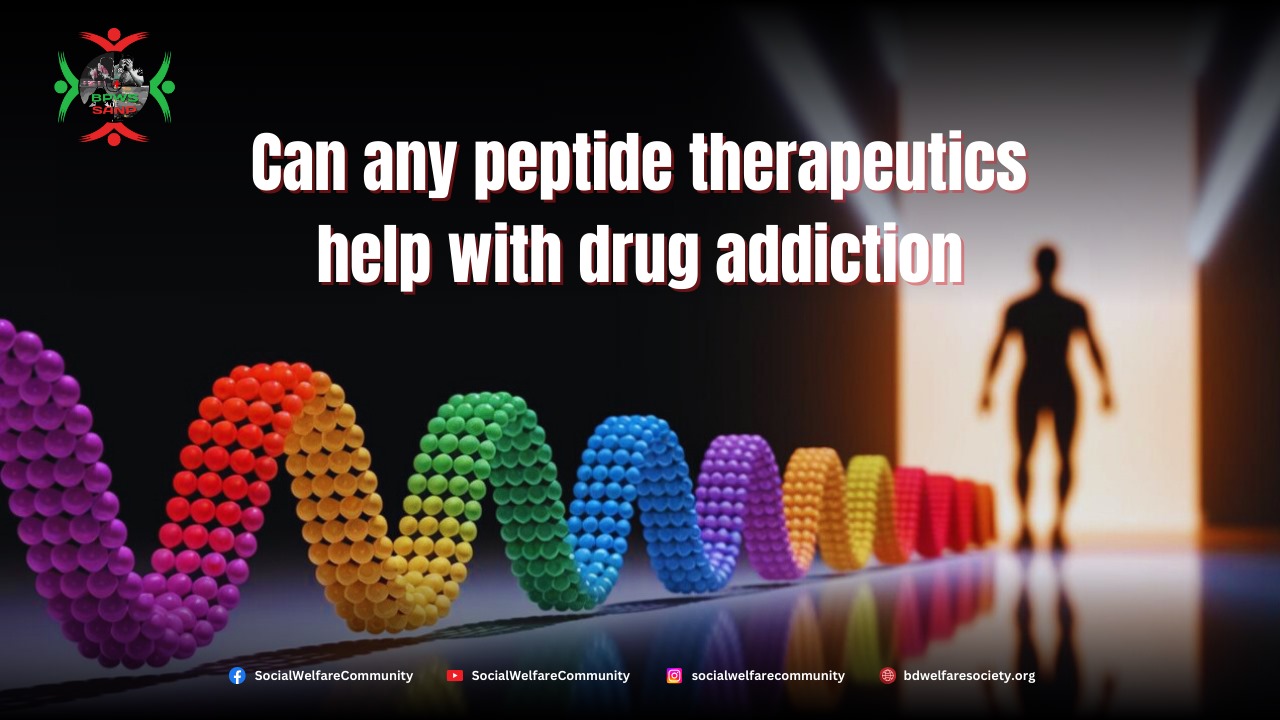
Can any peptide therapeutics help with drug addiction is still one of the most serious public health problems worldwide. conventional treatment modalities, including behavioral remedies and pharmaceutical therapies, suffer from problems such as lack of efficacy, high relapse rates, and severe side effects. Indeed, it has ignited a curiosity to investigate alternative treatment pathways that may better target biological mechanisms of addiction. Peptide-based therapeutics are one interesting category of this research. Related: Peptides: Short chains of amino acids that act as signaling molecules in the body, are becoming increasingly recognized for their potential in treating addiction. So how realistic is this possibility? Peptides have great potential for therapy, and in the present article, we approach the current state of the art of peptide-based therapies for the treatment of drug addiction, their mechanisms, current research, limitations and future perspectives.
So why all the talk about peptides and what do they do in the body?
Can any peptide therapeutics help with drug addiction are involved in various physiological functions such as pain perception, mood regulation, metabolism, and immune response. They do this by binding to specific receptors found on cells, either mimicking or regulating the actions of natural signaling molecules, including hormones and neurotransmitters. This precision leaves peptides with an enticing profile for therapeutic development. Because small-molecule drugs tend to affect multiple pathways — a so-called dirty hit — they can produce unintended side effects, whereas peptides are much more specific, working on targeted receptors with little risk of off-target effects.
Such specificity is especially pertinent to drug addiction, which involves dysregulated brain signaling pathways including those in the dopamine reward system responsible for the addictive behaviors and craving associated with substance use disorders. By modulating these routes, one may interrupt the addiction cycle with peptides.
Peptide Therapeutics and Mechanisms of Action in Addiction
Addiction is a complicated disease that is molded by a potency of genetic, environmental, and neurobiological factors. Neuropathways — networks created by connections of neurons — are integral to the brain’s reward system and are fundamental to addiction, with neurotransmitters such as dopamine being the key players. Drugs of abuse take over this system, leading to intense but false spikes of pleasure. The study notes that prolonged use of a substance changes signaling pathways in the brain, making it less responsive to natural rewards and increasing drug-seeking behavior.
Peptide-based therapies are hopeful because they are able to specifically combat certain facets of this dysregulation. Here are some possible ways the peptides could aid in treating addiction:
-
Regulatory Effects on Neurotransmitter Systems:
Some peptides can modulate the release or uptake of neurotransmitters such as dopamine, glutamate or GABA, which toy heavily implicated in addiction. For instance, one peptide implicated in stress response is corticotropin-releasing factor (CRF). The role of CRF overactivity in drug-seeking behavior, especially following withdrawal, has been established. Regulation of CRF activity with peptide therapeutics may mitigate stress-mediated relapse.
-
Hitting the Brain’s Reward System:
Peptides demonstrate potential to reduce addictive behavior, as in oxytocin. Oxytocin, commonly known as the “love hormone,” is involved in social bonding and stress reduction. Work with animals has shown that oxytocin can reduce drug-seeking behavior and decrease the risk of relapse by modulating circuits in the brain linked to reward.
-
Disrupting drug-receptor interactions:
Some peptides are intended to block the interaction between drugs and the targets they hit in the brain. Browse Use of certain opioid receptor antagonists based on peptide structures, for example, can also inhibit the desire to get high, reducing the desirability of the drug for users.
-
Reducing Withdrawal Symptoms:
Withdrawal is a significant roadblock to recovery and often leads people back to drugs. The aim of this approach is to use natural opioid-like molecules such as the peptides called enkephalins to relieve withdrawal symptoms because they reduce pain and anxiety without creating a risk of addiction like standard opioids do.
Recent Research & Future Directions
Several preclinical and clinical studies have also underlined the therapeutic potential of peptides in treating addiction (Preclinical and clinical studies). Here are some highlights:
-
Oxytocin and Stimulant Addiction: The Role of the Endocrine System in the Brain
There have been long-standing studies on the use of oxytocin for stimulant addiction (e.g., cocaine and methamphetamine). In rodent studies, oxytocin administration reduced drug-seeking behavior and attenuated the reinforcing effects of stimulants. Clinical trials are now starting to test whether these findings hold in humans, with early results demonstrating decreased cravings in people with addiction.
-
Modulators of Tryptophan Hydroxylase
Some peptides act on serotonin pathways by affecting tryptophan hydroxylase, the enzyme necessary for the formation of serotonin. Given that serotonin is a neurotransmitter and plays a critical role in impulse control and mood stabilization, augmenting serotonin activity has been suggested as a potential strategy for decreasing compulsive drug use and promoting mental health in recovery (Chiu and Smith, 2021).
-
Alcohol addiction and neuropeptide Y (NPY)
NPY is a stress and appetite regulating peptide. In animal studies, higher levels of NPY in the brain have been shown to decrease alcohol consumption and reduce anxiety caused by withdrawal, suggesting that NPY could be a treatment target for alcohol use disorders.
-
GLP-1 Receptor Agonists:
Which might come back to glucagon-like peptide-1 (GLP-1) receptor agonists, diabetes meds with some surprisingly promising research in addiction. GLP-1 receptors are expressed in brain areas related to reward and motivation, and studies in animals suggest that GLP-1 agonists decrease alcohol and cocaine consumption. Human trials are in progress to test their efficacy in the treatment of addiction.
-
Peptide Vaccines
In a Peptide-based vaccines as a novel treatment of drug addiction These vaccines create antibodies that attach to drug molecules in the blood, blocking their ability to enter the blood-brain barrier and producing euphoric effects. For example, vaccines targeting nicotine and cocaine have entered clinical trials and have shown efficacy in reducing drug cravings and preventing relapse.
Challenges and Limitations
Although this class of compounds holds great potential for treating addiction, peptide therapeutics have some issues that need solving before they can be considered commonplace addiction therapeutics.
- Stability and Delivery:
Peptides are fundamentally unstable molecules that can be quick to degrade within the digestive tract or bloodstream. This substantially hampers their bioavailability after oral administration, making alternative delivery modalities, such as injections, nasal sprays, or implanted devices, a prerequisite. Methods such as peptide modifications or encapsulation to improve stability and prolong therapeutic effects are being researched.
- Crossing the Blood-Brain Barrier:
For peptides to accurately target addiction they needs to access certain brain areas. However, the blood-brain barrier (BBB) constitutes a major barrier that hinders the passage of most large macromolecules, such as peptides, into the central nervous system. Eventually this problem may be overcome with advancements in nanoparticle–based drug delivery systems or molecular modifications that increase BBB permeability.
- High Development Costs:
Peptide-based medications are more expensive to develop and manufacture than small-molecule drugs because they are much more complex. This may impede their availability, particularly in resource-poor environments that experience rising rates of addiction.
- Limited Clinical Data:
Although laboratory studies have shown potential, very few peptides directed against addiction targets have reached human clinical studies at scale. The regulatory processes for the approval of such applications are often lengthy, and long-term safety and efficacy data are require prior to adoption.
- Individual Variability:
Addiction is a complex, individualized disease, impacted by genetic, environmental, and psychological elements. What is effective for one individual may not be effective for another, which emphasizes the importance of developing peptide therapies that can be tailor according to the specific requirements of an individual.
Future Outlook
The future of peptide therapeutics in addiction treatment is promising, despite these challenges. Peptide-based therapies are becoming easier to implement with the unending advances in biochemistry, molecular engineering, and drug delivery technologies. To this end, therapies such as GLP-1 receptor agonists and oxytocin-base treatments seem most promising and may be use alone or as adjunct strategies to conventional treatments.
Peptide combinations that target multiple pathways implicate in addiction are being investigate by researchers as well. For example, treating a cravings peptide with one that minimises withdrawal might address the complexities of addiction more holistically. Genetic testing and biomarkers are allowing for personalized medicine approaches that could further optimize the use of peptide therapeutics, identifying which patients are most likely to benefit from which specific intervention.
Conclusion
Among the promising new frontiers in the search for adequate addiction treatment can any peptide therapeutics help with drug addiction. Peptides display such a high level of specificity and have the potential to cut cravings, reduce withdrawal symptoms, and stop relapse by targeting the neurobiological mechanisms at the root of addictive behaviors. Despite challenges that some of the most important compounds (stability, delivery, high development costs) are being solve one by one with continue research and advancements in technology. Ongoing research in this area is focus on understanding this potential and developing peptide-base treatments that target specific pathways involve in drug addiction.
Frequently Asked Questions:
1. Peptide Therapeutics: Old Class, New Options for Fighting Drug Addiction
Peptide therapeutics — drugs that are short chains of amino acids that work by mimicking or augmenting natural functions in the body. The high specificity of these molecules allows them to target specific receptors in the body or supporting cells in the brain. In the case of drug addiction, they can be apply for the purpose of restoring balance in neurotransmitter pathways, alter by substance use, reducing cravings, alleviating withdrawal symptoms or altering intracellular pathways. Peptides can target the underlying biological drivers of addiction, making them a potentially novel addition to treatment repertoire that can be supplement or be use as an alternative to misconception of treatment methods.
2. Are there currently peptides in use or testing for addiction?
Yes, there are several peptides in development. Oxytocin, for example, has been effective in decreasing drug craving and in modifying reward pathways. The neuropeptide Y (NPY) has previously shown the promise in decreasing stress-induced substance-seeking behaviors.
3. What poses challenges in creating peptide-mediated treatments for addiction?
There are several challenges to developing peptide therapeutics. Peptides are fragile and can break down quickly in the body, complicating delivery methods (such as injections or nasal sprays). Moreover, they face challenges in crossing the blood-brain barrier, hindering their ability to directly target addiction-implicated brain processes. Moreover, creating peptides is expensive and long-term human clinical trials are require to verify safety and efficacy. These obstacles demonstrate the challenges of confiscating peptide-based addictions from bench to bedside.
 Prevention from Suicide, Addiction, Narcotics and Pollution. Withdrawal and Recovery Facts of Narcotics | Symptoms of Suicidal thoughts & Ideations | Effects of Environment Pollution | Understand Addiction withdrawal
Prevention from Suicide, Addiction, Narcotics and Pollution. Withdrawal and Recovery Facts of Narcotics | Symptoms of Suicidal thoughts & Ideations | Effects of Environment Pollution | Understand Addiction withdrawal
